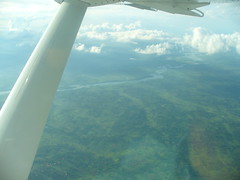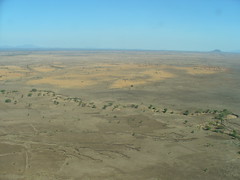I hope the following gives a taste of what we've seen and done....
You know you're in Africa when ...
10:30 am actually means 12pm, or maybe 1 or 2 pm.
It rains for less than an hour and everywhere is flooded. But the people are over-joyed.
The local church is just a tin roof.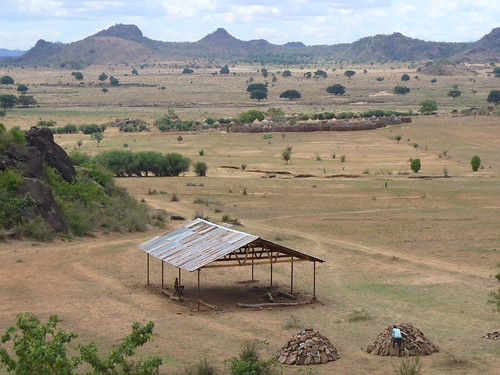
You have four armed police men guarding you at night.
Almost one-hundred people meet under a tree, and will listen to three locals and three Muzungu's talk about God.
Only English men use umbrella's when it rains.
Children have swollen bellies because there is no food.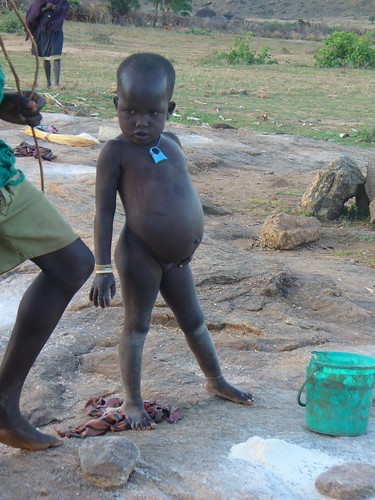
Young and old have eye problems that are a minor operation in the West. Yet when they look at you, you also see their love and gratitude for meeting you.
You borrow a local's bike, only to discover it has no brakes.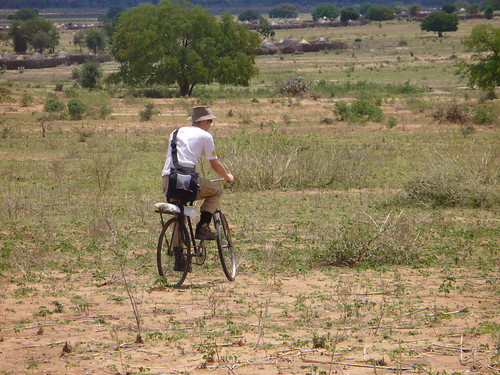
Your vehicle gets stuck in a dry river bed, and you and half a village dig, push and pull it out.
People who have nothing give you their fatest goat and chicken as a leaving gift. Some passengers (me) seem to worry about travelling with them though!
Planting a hedge is blister-making, back-breaking work (if you're a Muzungu, that is).
Going to the toilet (long-drop) at night may mean being shot (by a sleepy policeman, or whoever they're guarding us from).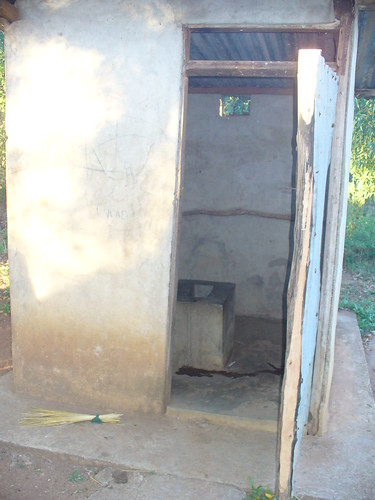
A game of hop-scotch attracts half the village.
People play football barefoot, despite inch-long thorns.
A three-hour church service is short. It (plus free lunch) attracts 720 people and ends with 102 people becoming Christians.

